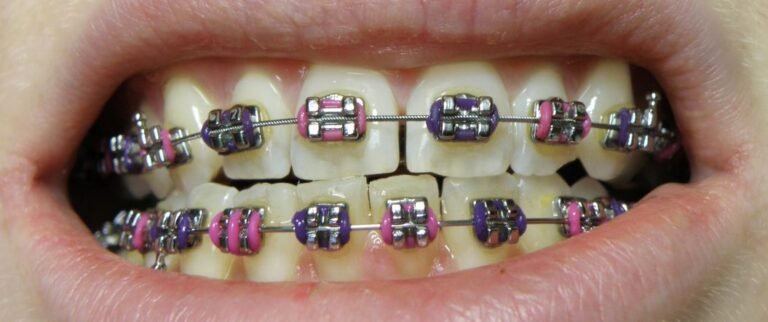Asides from having an unattractive smile, you need braces to fix your teeth and prevent certain issues. Although your dentist can examine your teeth to determine if you need braces, you need to have the right information to help you know when braces treatment is necessary.
Below are signs indicating you need to get braces to correct your orthodontic issues and how to start your braces treatment.
Pain while biting or difficulty biting
If you experience pain whenever you bite down or find it difficult to start a meal, especially hard-to-chew foods like sticky candy or apple, you may need to visit an orthodontist for braces treatment. This eating disorder result from teeth misalignment.
Excess or inconsistent gaps between the teeth
Having excess space between your teeth is a sure sign that you need braces. Gaps between the teeth increase the risk of jaw misalignment, eating difficulties, and tooth decay. In addition, foods can easily get trapped in the spaces between your teeth, leading to ongoing pain or gum irritation. Using braces can reduce the space between your teeth and prevent different problems in the future.
Crowded or crooked teeth
If your teeth are crowded, misaligned or crooked, you will need to wear braces to create more space to accommodate more teeth and realign your bite. You can tell if you are at risk of crowding by flossing regularly.
If you find flossing difficult, you may likely have teeth spacing issues that need braces. Untreated spacing issues can advance to cause impacted tooth that needs removal or expensive surgery.
Clicking or pain in the jaw
If you notice jaw pain or clicking, you may have misaligned teeth. Although some people write this off as occasional jaw pain, you need to inform your dentist about it. You can reduce jaw pain by straightening the teeth and correcting your bite issues.
In some people, jaw pain is a symptom of a more severe dental issue, so it is better to seek professional dental care.
Protruding teeth
If you have a tooth or teeth sticking beyond your lips, you need to wear braces to move the teeth into alignment. Although protruding teeth can leave you with an unpleasant smile, it increases your risk of having a dental injury. The protruding teeth can easily get knocked off during an accident.
What to do if you need braces
If you are experiencing any sign above or think you need braces, contact your orthodontist to schedule an appointment. Your orthodontist will need to examine your bite and teeth to know if you are suitable for braces treatment.
During the consultation, your orthodontist may want to know if you experience pain in your jaw or mouth or while chewing.
What to do if you cannot afford dental braces
Some dental insurance plans cover certain parts of a braces treatment, provided a licensed orthodontist recommends the treatment. Ensure you talk to your dental insurance provider before your braces treatment to know if your plan covers braces and how much you need to pay out-of-pocket.
Most dental practices offer different financing options to help make orthodontic treatments more affordable, so ask your provider for their payment options.
Research the most suitable braces
Different braces are available for straightening the teeth, from the traditional braces to Invisible braces in London. However, all types of braces have their up and downsides, so you may have to consult your orthodontist to choose a suitable teeth-straightening option.
Ensure you research the braces on your own, write down your questions and concerns, and discuss them with your orthodontist.
If you need an orthodontist that you can trust to help you choose a suitable orthodontic treatment to align your teeth or correct your bite issues, visit London Braces today or call us on 020 3745 7520 to schedule an appointment.
Our orthodontist will examine your teeth and conduct a thorough assessment to determine if you need Invisalign braces in London or traditional braces.
Cindy Invisalyn is an marketing manager of Invisalign dentistin London and a dental blogger.

